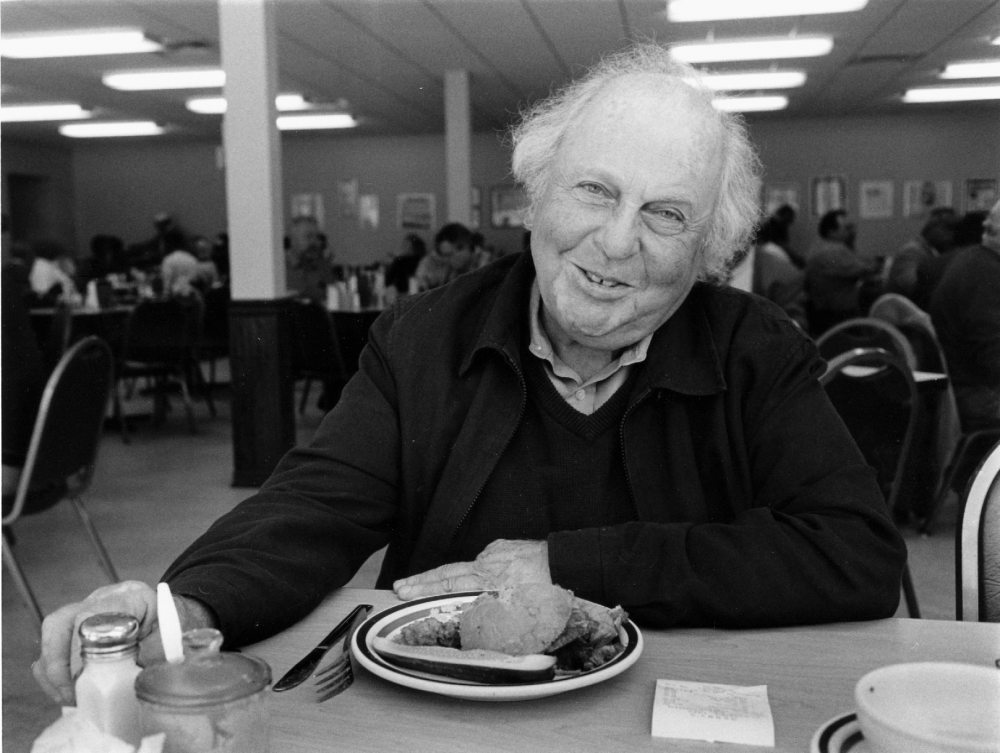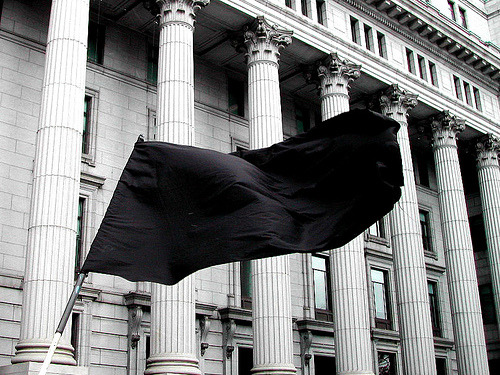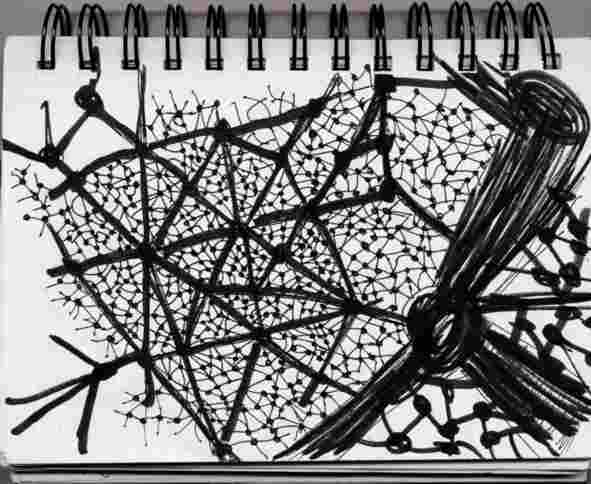Den
intellektuelle har et ansvar i et samfund, hvor han eller hun har
mulighed for at udtrykke sig frit dvs. uden nævneværdig risiko for
forfølgelse og afstrafning. Først og fremmest bør den
intellektuelles opgave være, at udpege politiske, økonomiske og
sociale strukturer som er autoritære, hierarkiske og derfor
dominansorienterede, for herefter at udfordre disse mhp. at få
klargjort om disse strukturer kan retfærdiggøres. Hvis ikke deres
legitimitet kan påvises klart og tydeligt, følger det selvfølgelig
at de må betegnes som illegitime og de må derfor forsøges skaffet
af vejen hurtigst muligt.
De
fleste af samfundets væsentligste strukturer er organiseret således,
at nogle få dominerer de mange som er underlagt dem, i de
institutionelle pyramider. Samfundet er altså overvejende
struktureret således, at vi allerede fra barnsben indoktrineres til
lydighed og underdanighed og vi lærer derfor allerede ganske
tidligt, at indfinde os med andres dominans og kontrol over os. At
denne indoktrinering er ganske effektiv kan ses i den kendsgerning,
at de færreste nogensinde stiller spørgsmålstegn ved disse
autoritære og dominansorienterede strukturers eksistensberettigelse.
Hvis
man det meste af sit liv er underlagt andres dominans og kommando,
vil mulighederne for at blive et frit og selvstændigt individ være
stærkt begrænsede, da der ikke efterlades ret meget plads til
selvstændighed, i hverken tanke eller handling, når en ganske stor
del af ens liv går med at med følge andres ordrer.
Autoritære
politiske og økonomiske strukturer koncentrerer beslutningstagningen
i toppen, hvorfor de som er underlagt toppens beslutninger, uden
nogensinde selv at få lov til at være med til at tage beslutninger,
reduceres til hjul i maskineriet. Det
hierarkiske og dominansorienterede samfund spilder således enorme
mængder hjernekraft og kreativitet på gulvet ved at umyndiggøre
størstedelen af befolkningen og udelukke dem fra beslutningerne og
varetagelsen af samfundet og økonomien. Dette er ikke blot et tab
for bunden af samfundspyramiden, men for samfundet som helhed.
I
den politiske orden kalder vi det parlamentarisme og repræsentativt
folkestyre. Vi afgiver
vores stemme til andre, som vi gennem hele vores liv er blevet
fortalt er myndigere og dygtigere til at varetage væsentlige dele af
vores liv, end vi selv er. Men selv indenfor den politiske magtsfæres
øverste nationale institution hersker hierarkiet og dominansens
logik, idet også mange af de politiske karrieremagere er underlagt
hierarkier og dominans, i de mestendels topstyrede partier, med deres
øjensynligt skrappe krav til partidisciplin.
På
arbejdspladsen sker noget lignende. Vi vinker selvstændigheden
farvel og imødekommer føjeligt chefens ordrer, i det mindste så
længe han er i nærheden. Gør vi det ikke, risikerer vi fyring
grundet “samarbejdsvanskeligheder”,
hvilket egentlig blot er nysprog for manglende lydighed og
underkastelse. Når krisen kradser og hundredevis står i kø for at
overtage ens plads er der selvsagt ikke det store incitament til
ulydighed. Den eneste forhåbning er derfor for mange, at man en dag selv stiger i
graderne, så man kan blive den der hundser rundt med de andre. Det
er trods alt knap så hårdt at blive sparket i røven dagligt, når
man har mulighed for at sende sparket videre ned gennem hakkeordenen.
I
en hierarkisk politisk og økonomisk orden, hvor nogle få menneskers
dominans over deres mange medmennesker opfattes som en selvfølge,
er det ikke måske ikke så underligt, at mennesket ser sig som
naturens retmæssige herskere. Konsekvenserne af denne besidder- og
herskertrang er dog efterhånden så smertefuldt åbenlyse, at ingen
blot nogenlunde oplyst person kan være ubevidst herom. Det herskende
politiske og økonomiske system synes derfor at mangle
eksistensberettigelse, for hvori skulle denne bestå, når dets
fortsatte eksistens undergraver fremtiden for store dele af både
menneskeheden og det øvrige liv på planeten?
Intet
ved den nuværende tingenes tilstand er baseret på uforanderlige
naturlove. Det behøver med andre ord ikke at være sådan. Andre
steder i den såkaldte demokratiske verden, er den autoritetskritiske
sol allerede vågnet i folks hjerter. I Sydeuropa ser vi hvordan folk
forlanger “ægte
demokrati nu!” og på den anden side af Atlanten var vi for nylig
vidner til en højlydt opposition til finanskapitalisternes
bankstervælde. Spørgsmålet er imidlertid hvor længe man her i
landet kan blive ved med at smile i sine lænker? Med en del held vil
tiden måske snart vise os, at lydighedskulturen besværligt trækker
vejret på sit dødsleje. Indtil da er man undskyldt hvis man højlydt
kommer til at grine, næste gang nogen begynder at tale om den
anti-autoritære danske befolkning.









